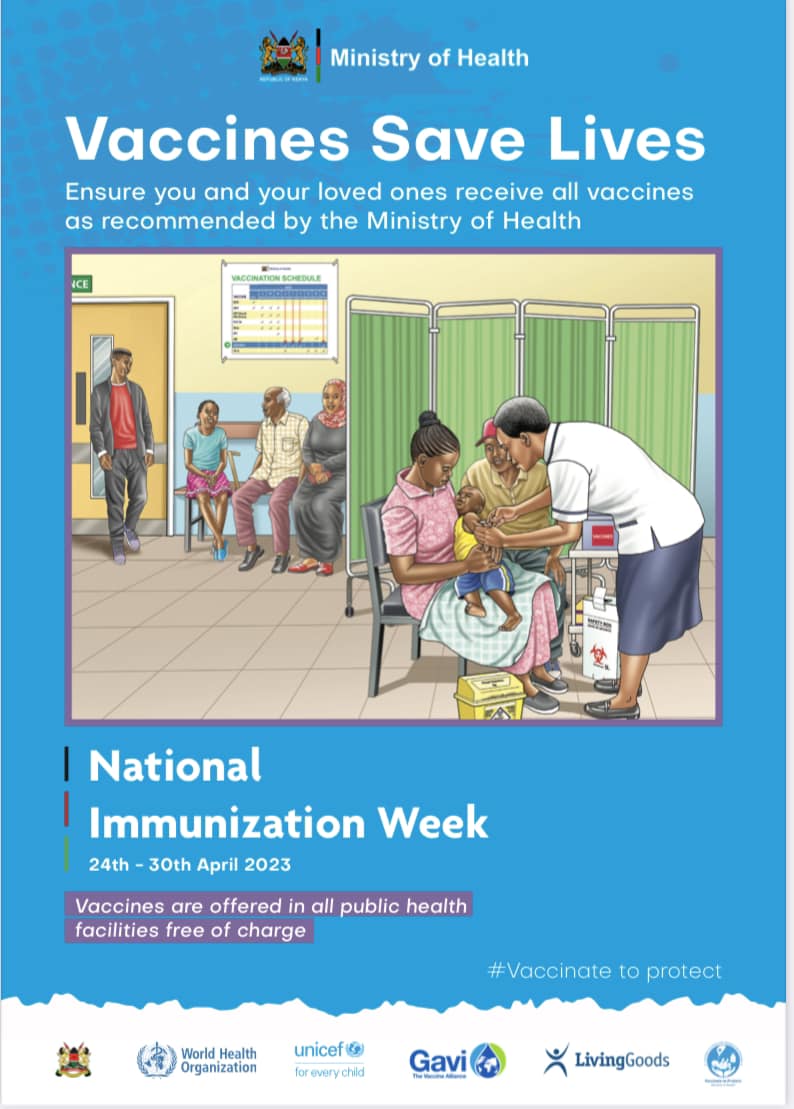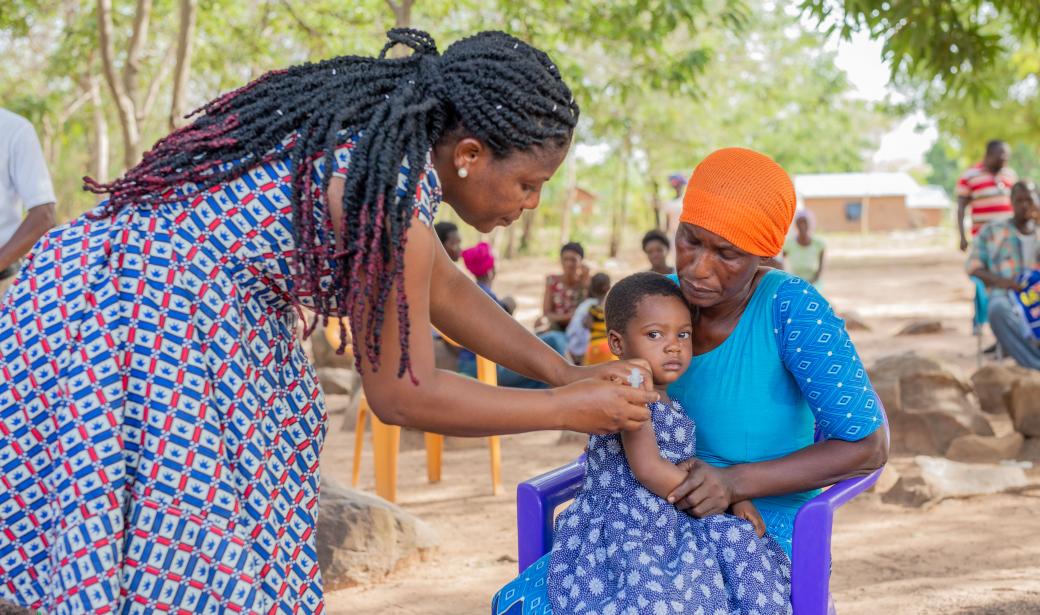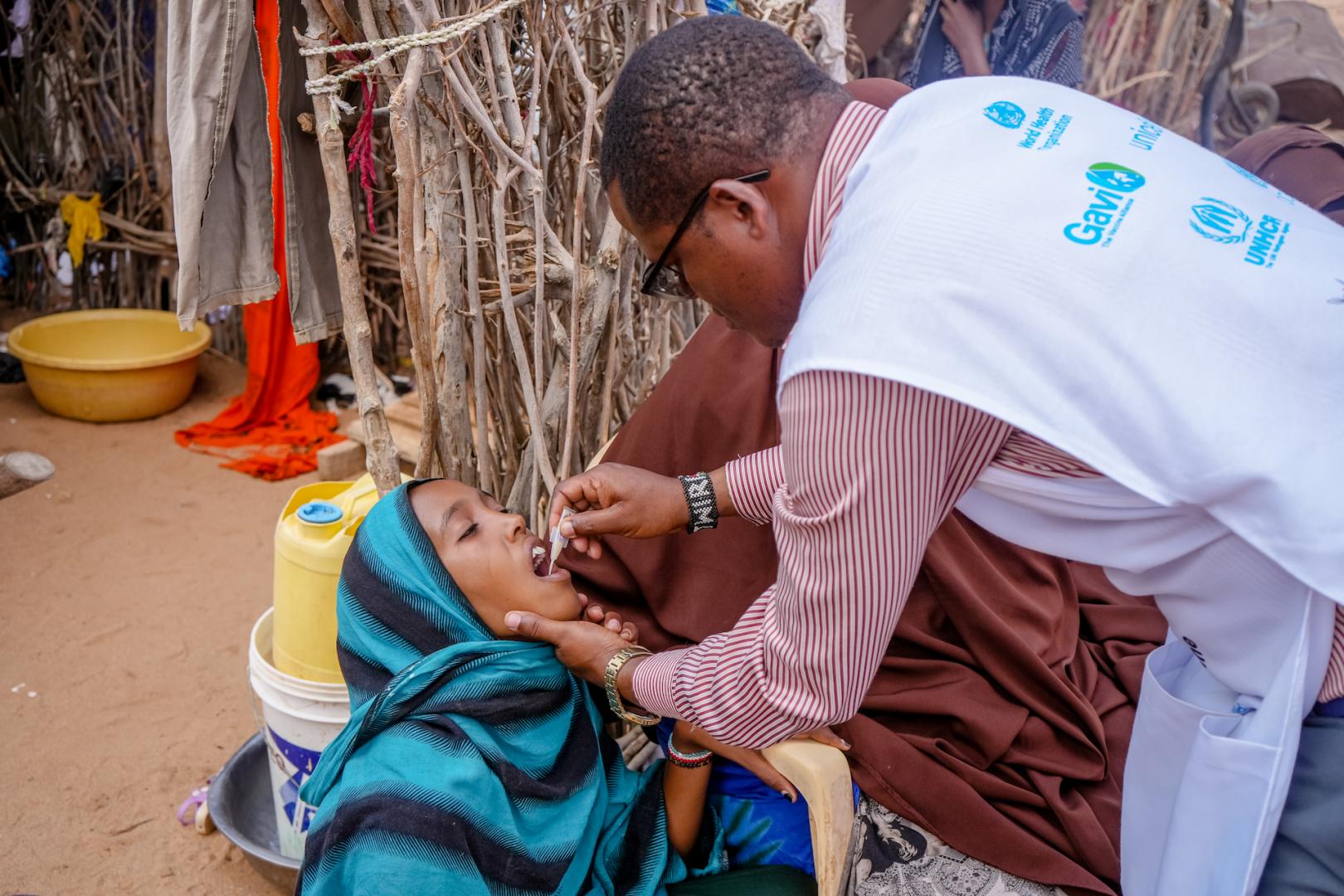Kenya has launched a vaccination drive aimed at recovering lost ground following the Covid-19 disruption.
The campaign is in tandem with World Health Organization’s efforts to vaccinate 33 million children in Africa in the next two years to bring the continent back on the global immunization track after the Covid-19 pandemic interruption.
Kenya hopes to regain momentum and catch up on essential immunization. The main target is millions of children who have been missing out on critical vaccines since 2019, according to the Ministry of Health.

A statement from the Ministry of Health said Kenya wants to achieve and sustain over 90 percent coverage of all the 15 different vaccines it provides.
These vaccines include tuberculosis, diarrhea, pneumonia, polio, diphtheria, measles, tetanus, whooping cough, hepatitis, meningitis, malaria, yellow fever, and cervical cancer.
Through the Kenya Expanded Program for Immunization (KEPI), the country aims at ensuring common diseases among children are prevented through immunization from birth.
UNICEF released a report expressing worry over the declining uptake of children’s vaccines in various countries since the Covid-19 pandemic.
Kenya is also keen on embracing World Health Assembly’s new global vision and strategy called the Immunization Agenda 2030 (IA2030), aimed at addressing immunization-related challenges over the next decade and saving over 50 million lives.
IA2030 envisions a world where everyone, everywhere, at every age, fully benefits from vaccines to improve health and well-being.
It aims to maintain hard-won gains in immunization, recover from the disruptions caused by Covid-19, and achieve even more without leaving anyone behind.
The State of the World’s Children 2023 report shows 67 million children missed vaccinations fully or partially between 2019 and 2021, with vaccination coverage levels decreasing in 112 countries, most of them in Africa.
“It is important that we all take action and encourage our friends, family, and community members to catch up on any missed vaccinations,” said the statement from Kenya’s Ministry of Health.
The United Nations Children’s Emergency Fund (UNICEF) released a report expressing worry over the declining uptake of children’s vaccines in various countries since the Covid-19 pandemic.
The organization, which is the largest provider of vaccines, attributes the disruption to the diversion of scarce medical resources, strained health systems, conflicts, and decreased confidence.
![A nurse administering a malaria vaccine to a child to mark the beginning of the expanded immunization programme [Sayibu Ibrahim Suhuyini/WHOGhana]](https://allianceforscience.org/wp-content/uploads/2023/04/GHANA.jpg)
The State of the World’s Children 2023 report shows 67 million children missed vaccinations fully or partially between 2019 and 2021, with vaccination coverage levels decreasing in 112 countries, most of them in Africa.
Dr Collins Tabu, Immunization Specialist from UNICEF Kenya Country Office, says the sad state of affairs is dangerous and many children are now at risk of contracting deadly yet immunizable diseases.
“UNICEF is supporting the Government of Kenya to establish systems to reach out to these children and ensure they are protected, especially in deprived and disadvantaged communities and informal settlements,” said Dr Tabu.
He called upon Kenyans, especially those in rural areas where resistance rates are high, to embrace vaccines and protect themselves against deadly diseases.
The impact of Covid-19 across the continent resulted in more children missing critical routine immunization.
To make the immunization drive a success, Kenya’s Health Ministry has organized activities to raise awareness of the importance of vaccines and to encourage more people to get vaccinated.
Some of the events and activities include public awareness campaigns, immunization clinics, and community outreach programs.
Experts have lauded the vaccine drives across the continent, calling upon citizens to embrace the initiatives.
Nairobi-based Dr Anne Pita Lomole, a consultant pediatrician and Infectious Disease Specialist said the importance of vaccines can’t be gainsaid.

“Vaccines are important and are the greatest and most effective public health interventions for protecting children and adults,” said Dr Lomole.
“It’s important to keenly follow the schedules and ensure your children get all the recommended vaccines to save them from disability and even death.”
The World Health Organization says the move to vaccinate 33 million children in Africa will be necessary for achieving the 2030 Global Immunization Goals, which include reducing morbidity and mortality from vaccine-preventable diseases.

The impact of Covid-19 across the continent resulted in more children missing critical routine immunization.
WHO estimates the rise between 2019 and 2021 to be approximately 16 percent, which represents an average of 33 million.
“The pandemic has seriously set back the region’s vaccination efforts and left millions of children vulnerable to vaccine-preventable diseases that can cause serious illness and even death,” said Dr Matshidiso Moeti, WHO Regional Director for Africa.
Global Alliance for Vaccines and Immunization, whose mandate includes increasing access to immunization in poor countries, has promised to support the Global South to make up lost ground.
Moeti added that Africa cannot afford to further lose ground in immunization, especially at a time the rest of the world is striving to emerge from the shadow of Covid-19.
During World Immunization Week whose theme was theme “The Big Catch-Up”, several nations ramped up efforts to enlighten citizens on the importance of immunization.
“This is a global push by World Health Organization and partners to intensify efforts to reach children who missed vaccinations, as well as to restore and strengthen routine immunization programs,” said WHO in a statement.

Working in tandem with WHO, Global Alliance for Vaccines and Immunization (GAVI), whose mandate includes increasing access to immunization in poor countries, has promised to support the Global South to make up lost ground.
“Our Alliance is committed to working with countries and communities alike to support efforts to catch up and restore immunization, focusing on responding to the unique needs of each child. We are keener on countries in hard-to-reach areas and with fragile and conflict settings,” said Aurelia Nguyen, chief programs and strategy officer for GAVI.
The “Big Catch-Up” like previous vaccine drives such as 2021’s “Vaccines Bring Us Together” campaign is being backed by governments, following endorsement by African Heads of State during the African Union Summit in February 2023.
Despite the Covid-19 pandemic disruptions, at least one-third of African countries have sustained the target coverage of 90 percent or higher for most of the essential vaccines.
